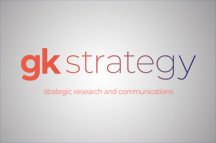As the contest for the Conservative Party leader and the next Prime Minster reaches a climax, scrutiny is turning to the spending plans of the likely winner. Boris Johnson, the front runner, is running an effective campaign to win the leadership ballot amongst Tory members. His public spending plans will be a key interest for businesses who work with government, public sector organisations and the wider economy. So what does Prime Minister Boris have in store and how could this affect the economy?
Cutting taxes
So far, Boris has clocked up about £25bn in promises of extra spending. Front and centre is a pledge to raise the higher-rate income tax threshold to £80,000 from £50,000, costing £9bn. This is red meat for the Tory membership, a policy designed to help him win the leadership election and get into Number 10. As well as cutting tax, Johnson has made several pledges for extra spending. Boris has said that education would be his number one priority and committed to pumping an extra £4.6bn a year into primary and secondary schools by 2022-23. Boris has also made a myriad of spending pledges across other policy areas: recruiting an extra 20,000 police officers, maintaining spending 0.7% of GDP on foreign Aid, and delivering full fibre broadband in every home by 2025.
Healthcare
Meanwhile, Matt Hancock, a Boris-backer and potential future Chancellor, has voiced support for lifting public sector pay (although not yet publicly endorsed by Johnson personally). Despite the long-term NHS funding settlement, NHS capital and training budgets are still be determined and there will be extensive lobbying from NHS England to secure necessary investment – were he to become Chancellor, Hancock may favour additional spending in his old brief of health. Boris himself showed his enthusiasm for show-piece investments during his London mayoralty, backing the Emirates Air Line, supporting plans for a garden bridge, and more recently discussing building a bridge from Scotland to Northern Ireland. Officially he has promised to review the High Speed 2 (HS2) rail development, but despite pressure to scrap HS2 from right-wing of Tory Party, his appetite for big, shiny infrastructure projects will likely prevail, and the Treasury will continue to prioritise investment in this and similar projects.
Brexit Deal
Given all these pledges, the Institute for Fiscal Studies (IFS) estimates Johnson’s proposals would require higher national borrowing, raising taxes or the extension of spending cuts in other areas. In all likelihood, this would mean increasing the deficit from 1.2% of GDP towards 2% of GDP, the upper limit set by Philip Hammond, the current Chancellor. These spending plans must be set against, and are interdependent with, the wider economic landscape. Boris’ ‘do or die’ commitment to deliver Brexit by 31st October makes a ‘no-deal’ Brexit and its economic impact more likely. This will only add to pressures on public spending by depressing tax receipts – the IFS has dismissed the idea of any ‘Brexit dividend’.
During the financial crash of 2008, governments and central banks across the world took necessary measures: borrowing to recapitalise banks and support lending, and cutting interests rates to stimulate growth. Today, interest rates are already rock bottom and UK public debt is now 86.7% of GDP (compared to 49.7% of GDP in 2008). There is little fiscal or monetary wriggle room left to deal with a future recession during Boris’ premiership, which grows more likely with the possibility of a no deal Brexit or as the risk of Donald Trump instigating a global trade war rises. Without raising extra revenue, Boris’ spending plans will not prepare the country for a future economic downturn and are unlikely to survive one.
Change of direction?
If he keeps to his promises, Prime Minister Boris will increase funding for priority and populist investments whilst cutting taxes. While Boris’ commitment to tax cuts, spend money on police and schools and consider a no deal Brexit plays well with Tory members and will help him win the party leadership, it could take the country to the edge of the precipice. It remains to be seen whether Boris will then take a great leap forward by trying to honour all his campaign promises. The very real threat of an economic downturn – and the UK’s lack of flexibility to respond – could force a rapid change of direction.
By Edward Jones












